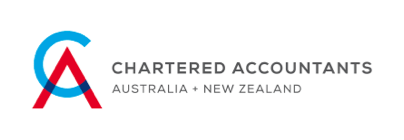Maintaining the books for schools can be complex. The diverse range of stakeholders to manage and unique compliance challenges to meet can put small finance teams under pressure. Allen Audit & Advisory Director Richard Allen provides practical advice for streamlining processes, and ensuring transparency and accountability for your school’s finances.
What are the key areas schools should focus on to maintain financial health?
Richard says developing budgets, and then regularly reviewing and analysing them, is vital. “Establishing budgets allows the accounts team to have an accurate oversight of the financial position of the school at all times, and to make adjustments or take actions early where necessary,” he says.
“Like any business, closely monitoring cash flow throughout the year is extremely important and can, in fact, be particularly pertinent in schools where cash inflows are often lumpy in alignment with school terms.”
What day-to-day best practices do you recommend for managing school finances?
Schools need to ensure they have up-to-date records, do regular reconciliations of all key balance sheet items and retain tight control over debtors. “With multiple revenue streams coming from diverse sources, staying on top of incomings and outgoings is essential for schools,” advises Richard.
“Regularly reviewing and reconciling accounts makes the process straightforward, and ensures records remain accurate and compliant. It also gives a helicopter view of what debtors may need to be followed up, so the team can stay on top of those requiring reminders.”
Richard says it is also important to have more than one set of eyes on the schools’ finances. “The key internal control we recommend is a second level review of all key reconciliations and processes,” he says. “This helps to avoid mistakes or cases of mismanagement.”
How can schools structure their financial reporting to ensure accountability to stakeholders, including parents, governing bodies and boards?
Richard says staying on top of budgets provides finance teams with the timely and accurate reporting expected of their school community. “Generally, reporting to parents aligns with specific needs, such as the payment of school fees or excursions,” he says.
“When it comes to regulatory bodies, detailed information is needed on how funds have been used, with restricted funds adding an additional layer of complexity. These funds, which include donations or grants given for a specific purpose, need to be tracked and an acquittal prepared for the relevant governing body.”
What role does auditing play in maintaining financial transparency?
Regular audits are essential for maintaining financial transparency and accountability for schools. Audits examine revenue recognition, wages and fixed assets, among other areas, to identify any issues.
Richard says engaging an external auditor allows schools to independently verify the accuracy of their financial statements, providing confidence to the school community.
“Auditors can uncover accounting errors or misallocations, as well as detect cases of outright mismanagement or fraud,” he says. “This provides assurance to all stakeholders that funds are being used appropriately. External audit teams are also a great resource for helping to improve systems, ensuring continuous refinement of schools’ financial processes.”
Richard says schools must conduct periodic internal audits and report to their relevant regulatory or governing body to stay compliant with Australian financial regulations, which differ depending on the nature of the school.
“The audit process reviews income statements, balance sheets, cash flow statements, and adherence to accounting standards, ensuring all records are accurate and compliant,” he advises.
What are the most common finance mistakes schools make?
Richard says the biggest issue for schools is not staying on top of debtors. “When debtors get out of hand it can become difficult for schools to recover the funds, particularly as students may have left the school community, making contact difficult,” he says.
“Our number one piece of advice is to ensure you have the appropriate internal controls in place, such as regular reporting, so these cases can be identified early and the appropriate reminders or conversations initiated.”
Richard also recommends regular reporting and multiple levels of reviews to avoid other financial issues.
How can technology help streamline financial reporting and improve transparency?
Automation is one way to avoid oversights, free up time, streamline processes and improve the accuracy of reporting. “Automation reduces the likelihood of manual errors and increases efficiencies, assisting accounts teams who are often dealing with a significant workload and large amount of data every day,” says Richard.
“Technology means everything from payment reminders to payroll can be automated. It also allows for easier financial record keeping, increasing transparency and the availability of accurate data to analyse.
“At the same time, automating these lower-level tasks allows finance teams to spend more time reviewing important data that can improve the financial health of the school. Leveraging data analytics means they can better make informed decisions, by identifying spending patterns and potential savings.”
What are the key regulations schools need to be aware of?
Schools must comply with the Australian Education Act 2013, which governs how government and non-government institutions receive and appropriately spend Commonwealth funding.
Depending on the school, they may also need to meet the regulatory requirements of governing bodies such as:
- Australian Charities and Not-for-profits Commission (ACNC)
- Australian Securities & Investments Commission (ASIC) / Corporations Act
When should schools engage an external auditor?
An external audit is recommended at least annually, with larger institutions often requiring a mid-year check-in also. Richard advises reaching out to an auditor early, who can guide you on what you need to prepare – and when – to ensure the process runs efficiently and smoothly.
“The team at Allen Audit & Advisory specialises in school audits for all types and sizes of educational institutions, so we’re here to assist you through the process and ensure you, and your wider school community, get the most out of it,” says Richard.
“An external audit is an opportunity to assess and tighten your financial processes, and showcase your transparency and accountability to families, staff, boards and other stakeholders.”
Visit our resource section to read about acing your school audit.
If you’d like to learn more about Allen Audit & Advisory’s school audit and advisory services, please call the team on 07 5503 1709 or email info@allenaudit.com.au.








